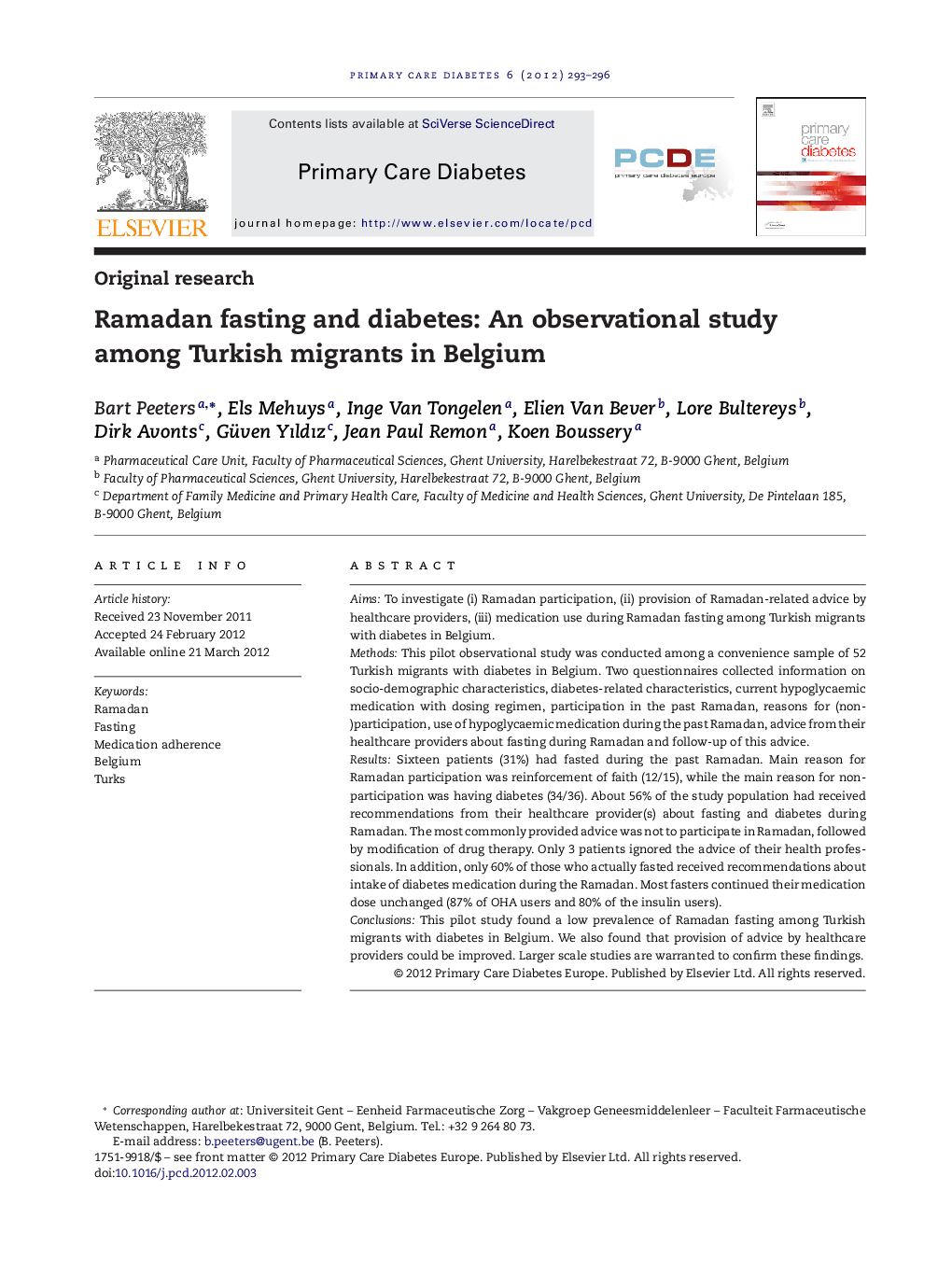| Article ID | Journal | Published Year | Pages | File Type |
|---|---|---|---|---|
| 2679073 | Primary Care Diabetes | 2012 | 4 Pages |
AimsTo investigate (i) Ramadan participation, (ii) provision of Ramadan-related advice by healthcare providers, (iii) medication use during Ramadan fasting among Turkish migrants with diabetes in Belgium.MethodsThis pilot observational study was conducted among a convenience sample of 52 Turkish migrants with diabetes in Belgium. Two questionnaires collected information on socio-demographic characteristics, diabetes-related characteristics, current hypoglycaemic medication with dosing regimen, participation in the past Ramadan, reasons for (non-)participation, use of hypoglycaemic medication during the past Ramadan, advice from their healthcare providers about fasting during Ramadan and follow-up of this advice.ResultsSixteen patients (31%) had fasted during the past Ramadan. Main reason for Ramadan participation was reinforcement of faith (12/15), while the main reason for non-participation was having diabetes (34/36). About 56% of the study population had received recommendations from their healthcare provider(s) about fasting and diabetes during Ramadan. The most commonly provided advice was not to participate in Ramadan, followed by modification of drug therapy. Only 3 patients ignored the advice of their health professionals. In addition, only 60% of those who actually fasted received recommendations about intake of diabetes medication during the Ramadan. Most fasters continued their medication dose unchanged (87% of OHA users and 80% of the insulin users).ConclusionsThis pilot study found a low prevalence of Ramadan fasting among Turkish migrants with diabetes in Belgium. We also found that provision of advice by healthcare providers could be improved. Larger scale studies are warranted to confirm these findings.
